A Japanese scholar gives her personal view on J. Robert Oppenheimer
By Shiho Nakazawa | July 21, 2023
A Japanese scholar gives her personal view on J. Robert Oppenheimer
By Shiho Nakazawa | July 21, 2023
There are a variety of different views about Oppenheimer here in Japan. Some may be interested in his scientific achievements as a theoretical physicist, while others may consider him as a victim of the evils of McCarthyism. Political scientists may say they cannot ignore his unrealized plan for international control of atomic energy or ask why “the father of atomic bomb” was against the development of hydrogen bomb. But almost all Japanese who know of Oppenheimer recall his name every summer, especially on the commemoration days of Hiroshima and Nagasaki.
Consequently, I cannot give the big-picture view of how everyone across the country of Japan views Oppenheimer.
But as a researcher in international politics, I can give my own, personal, limited viewpoint of J. Robert Oppenheimer—about whom I wrote a book in 1995. The man was both a scientist and an administrator in a pivotal era, namely, the earliest days of the atomic age.
In this essay, I will focus on his attitude towards American policy regarding nuclear weapons, and compare this with other physicists in the same era who also tried to steer the world (with mixed success) away from a runaway nuclear arms race. I will compare Oppenheimer’s efforts in this arena to those of Niels Bohr and Leo Szilard, respectively, and then compare them all to Cold War warrior Edward Teller.
First, however, we need a little background on the role of scientists and policy-making in the early days of nuclear development.
Scientists and policy-making
When nuclear fission was discovered in 1938, the research and development of atomic energy was almost completely in the hands of scientists. This pattern continued in the early years; when President Roosevelt formed a group of experts in the fields of science, economics, and the military to look into the possibility of a nuclear weapon in 1939 (known as the Advisory Committee on Uranium), the scientists on the board—such as Leo Szilard, Eugene Wigner, and Edward Teller—quickly took the initiative. From that point on, nuclear research and development was expanded under the control of organizations such as the National Defense Research Committee, and the Office of Scientific Research and Development, which were supervised by scientists and engineers such as Vannevar Bush and James Conant
But when what was then known as the US War Department (now the Defense Department) finally assumed responsibility for the actual construction of atomic bombs, a strict compartmentalized system was built, and scientists’ roles changed dramatically. Scientists who had played leading roles in nuclear research and development had to resign themselves to being merely a cog in a wheel. Even Bush and Conant—who oversaw multiple vital wartime research projects, including the Manhattan Project—found themselves merely advising the top policy-makers rather than deciding themselves how these new scientific developments would ultimately be used.
Oppenheimer’s position might be seen as similar to that of Bush and Conant. However, during the period between the end of World War II and 1954 when he was deprived of his public position, he had much more influence than other scientists. He was lionized as a hero in newsreels and the press, with a hugely influential public platform. Oppenheimer was a leader in more than 35 organizations, such as essential government committees, councils, research projects, and so forth.
Additionally, he accepted more than 120 requests for TV, radio, and lecture appearances. During this period, Oppenheimer might have been the most famous person in America. Aware of his public platform and his power as the ultimate “influencer”—to use today’s parlance— Oppenheimer tried to participate in the decision-making processes about nuclear policy. He encouraged government personnel to understand the dual nature of atomic energy, calling it both a “peril” and a “hope.” He sought to formulate a policy to change the peril into the hope; the Acheson-Lilienthal Plan for the avoidance of a nuclear arms race being a prime example. The draft of this first US plan for the international control of atomic energy was born from his idea.
It is quite possible that Oppenheimer learned from Niels Bohr’s efforts and those of the Chicago scientist group (who assembled what became known as the Franck Report that argued against the use of nuclear weapons two months before the atomic bombing of Japan) about the overall, general idea for international control of atomic weapons and energy. But Oppenheimer’s plan was a complete, thought-out policy proposal for implementation. In other words, his plan was not an idealist’s pie-in-the-sky presentation as he is sometimes accused of, but rather a practical suggestion.
Oppenheimer and Bohr
For Oppenheimer, Bohr was not just a great pioneer in the quantum theory, he was like a father who helped and encouraged the young Oppenheimer during his student days in Europe. (According to American Prometheus—a magisterial biography of Oppenheimer—a friend of Oppenheimer’s once remarked that “Niels Bohr was God, and Oppie was his prophet.) Bohr organized his laboratory in Copenhagen as a kind of international research institution where many scientists gathered from different backgrounds.
Bohr recognized the nature of atomic energy earlier than anyone else, and his ideas formed the base of Oppenheimer’s plan for the international control of atomic energy. For example, both scientists insisted on the importance of securing international trust by providing open access to basic information in this field, and of heading off the fatal arms race by establishing an international agency which would control nuclear materials.
But at the same time, there were serious differences between them. Bohr tried to establish the international control of atomic energy before atomic bombs were made, but Oppenheimer could not propose the plan before dropping the bombs. I don’t intend to condemn Oppenheimer for this, for I know that he took responsibility for the completion (and therefore the use) of atomic bombs as the head of Los Alamos Scientific Laboratory. Nevertheless, I can’t stop thinking that the biggest weak point of Oppenheimer’s plan for the international control of the atomic energy may be at this singular time in history. I think that after using the devastating weapons, without revealing the nature of them in advance, it was very difficult to get cooperation from other nations, especially the USSR.
I want to depict another difference between Bohr and Oppenheimer. While Bohr was the authority in the academic world, at the Manhattan Project, he was just one more adviser. Bohr was not at the center of any organization of the Project. So, when Bohr wanted to present his plan on the international control of atomic energy, he had to directly approach Prime Minister Churchill and President Roosevelt. Although that direct appeal resulted in complete failure, we should not forget Bohr’s universal idea.
As for Oppenheimer, he was a central figure during the war in the administration of American nuclear policy and he continued to play this critical role up until about 1954, when the trumped-up security hearings were held that brought about his downfall. The reason why the Acheson-Lilienthal Plan focused more on cooperation than the US formal plan on the international control of atomic energy (the Baruch Plan, which was characterized by its hostile expressions) was that Oppenenheimer realized that he might be sent to an international negotiation as the US representative.
It is easy to be cynical and say that such a negotiation was impossible because the Cold War had already started. But I think we must keep in mind that as one of the leading scientists who opened the door to the atomic age, Oppenheimer really did try to change “the peril” into “the hope.”
Oppenheimer and Szilard
Although both Oppenheimer and Szilard participated in the Manhattan Project and recognized the necessity for international control of atomic energy, they acted very differently. Some of the differences resemble those which existed between Oppenheimer and Bohr. But there was a much more striking difference between Oppenheimer and Szilard: the difference in the attitude toward the use of atomic bombs.
Oppenheimer supported dropping atomic bombs on large cities without warning.
Szilard was against using the atomic bombs and circulated a petition on that point among the Chicago scientist’s group. He also asked Teller to do the same in Los Alamos Laboratory, which was stopped by Oppenheimer.
It is well known among historians that Szilard was the real author of “the Einstein letter” addressed to FDR which started the development of the atomic bomb in the United States. Recognizing the terror of the situation if Hitler produced the atomic bomb first, Szilard successfully aroused the interest of the United States Government. His purpose was to make America be the leader of the atomic age and to prevent Hitler from possessing this weapon. So, after the surrender of Germany in May 1945 and the danger removed, Szilard wondered why they should continue to develop atomic bombs, and he began advocacy for his position again.
Szilard became one of the members who drafted “the Franck Report,” which proposed the necessity of early negotiations with USSR and presented the plan for the international control of atomic energy. To achieve future international control, the Franck Report concluded that using atomic bombs against Japan would not be desirable, for such usage would hinder any sense of international trust and cooperation which would be essential for international control. The Franck Report—which was addressed to US Secretary of War Henry Stimson—was not delivered to the Secretary. So, Szilard moved to more direct actions such as the petition mentioned above.
Some Japanese hold Szilard’s actions in high regard for his objection to the use of the bomb. But I wonder whether Szilard himself really thought he could change the government’s decision to use the atomic bombs. I don’t mean to imply that he was hypocritical; I do imagine that his real purpose was to show clearly the responsibility of a scientist who participated in the development of this terrible weapon.
After the war, Oppenheimer said “I feel I have blood on my hands.” I don’t think that was just a one-time expression: Oppenheimer must have felt a pang of regret when he said this. But such a regret was different from Szilard’s attitude, which not only recognized moral responsibility but also questioned the use of atomic bombs long before Hiroshima and Nagasaki. Oppenheimer, as one of the members of the Scientific Panel to the Interim Committee (which discussed many important things about the conduct of the war and the possible use of atomic bombs) clearly expressed his opinion that the bomb should be used against Japan as soon as possible. As a leader of the Los Alamos Laboratory—which undertook the final process of the development of the atomic bombs—he could not bring himself to deny the use of the new weapon.
As mentioned earlier, the Franck Report ultimately was not read by Secretary Stimson. Instead, that report was handed to the Scientific Panel. Oppenheimer wrote to Stimson about the Franck Report indirectly about two weeks after the most important conference of the Interim Committee (May 31, 1945), saying that “the opinions of scientific colleagues on the use of the weapons are not unanimous.” He summarized the Report as “a proposal of a purely technical demonstration”—presumably meaning that an effort should be explored to drop a nuclear bomb on an isolated, unpopulated area to show what this new weapon could do—instead of explaining its arguments for and against such an approach. As I mentioned, the Report strongly recommended that there be a dialogue with the USSR before the use of the atomic bombs, and insisted the establishment of international control of atomic energy would be only way to avoid the arms race.
A “technical demonstration” was proposed as just one of the alternative’s to military use, which was clearly not the point of the Report. I cannot avoid thinking that Oppenheimer intentionally did not consider or circulate the Franck Report before the end of the war.
Oppenheimer and Teller
The easiest way to compare these two scientists may be found in the expressions: “thefather of atomic bomb” and “the father of hydrogen bomb.” But deeper analysis is required.
For Teller—a native-born Hungarian who fled in the face of a Nazi takeover, only to see Stalin’s Red Army eventually move in—the threat of Hitler’s possession of atomic bombs and that of the USSR were essentially the same. Therefore, when the Cold War started, he decided to pursue the development of hydrogen bombs without hesitation. And Teller’s feeling that he was treated badly in the Manhattan Project seemed to be another motive for the development of a new weapon.
Oppenheimer could also recognize the grave situation of the Cold War, and felt seriously that US-USSR relations were getting worse. But the threat he felt was not the same as that of Teller. For Oppenheimer, the endless arms race which would be accelerated by the hydrogen bomb was the real threat.
At that time, Oppenheimer could share the same sense of dread that Bohr and Szilard must have felt. I don’t think that threat was the only reason, but was the biggest one why Oppenheimer opposed the development of the hydrogen bomb.
I find the article which Oppenheimer contributed to Foreign Affairs in July of 1953 called “Atomic Weapons and American Policy” to be very impressive; it seems to me that this article shows how Oppenheimer reached his final conclusion after long and difficult days of struggle. In it, Oppenheimer pointed out the difficulties of negotiations with the Soviet Union first, and said that in such a serious situation, American nuclear policy became “a fairly simple one”—that there could only be a “let us keep ahead” policy. Henceforth, “two Great Powers will each be in a position to put an end to the civilization and life of the other, though not without risking its own. We may be likened to two scorpions in a bottle, each capable of killing the other, but only at the risk of his own life.”
The proposal which Oppenheimer presented for avoiding the “two scorpions in a bottle” situation was similar to that of Bohr or of the Franck Report. For me, that similarity is precisely the situation which remains true for today.
Together, we make the world safer.
The Bulletin elevates expert voices above the noise. But as an independent nonprofit organization, our operations depend on the support of readers like you. Help us continue to deliver quality journalism that holds leaders accountable. Your support of our work at any level is important. In return, we promise our coverage will be understandable, influential, vigilant, solution-oriented, and fair-minded. Together we can make a difference.
Keywords: Hiroshima, J. Robert Oppenheimer, Nagasaki, atomic bomb
Topics: Hiroshima & Nagasaki, Nuclear Weapons, Opinion, Personal Essay

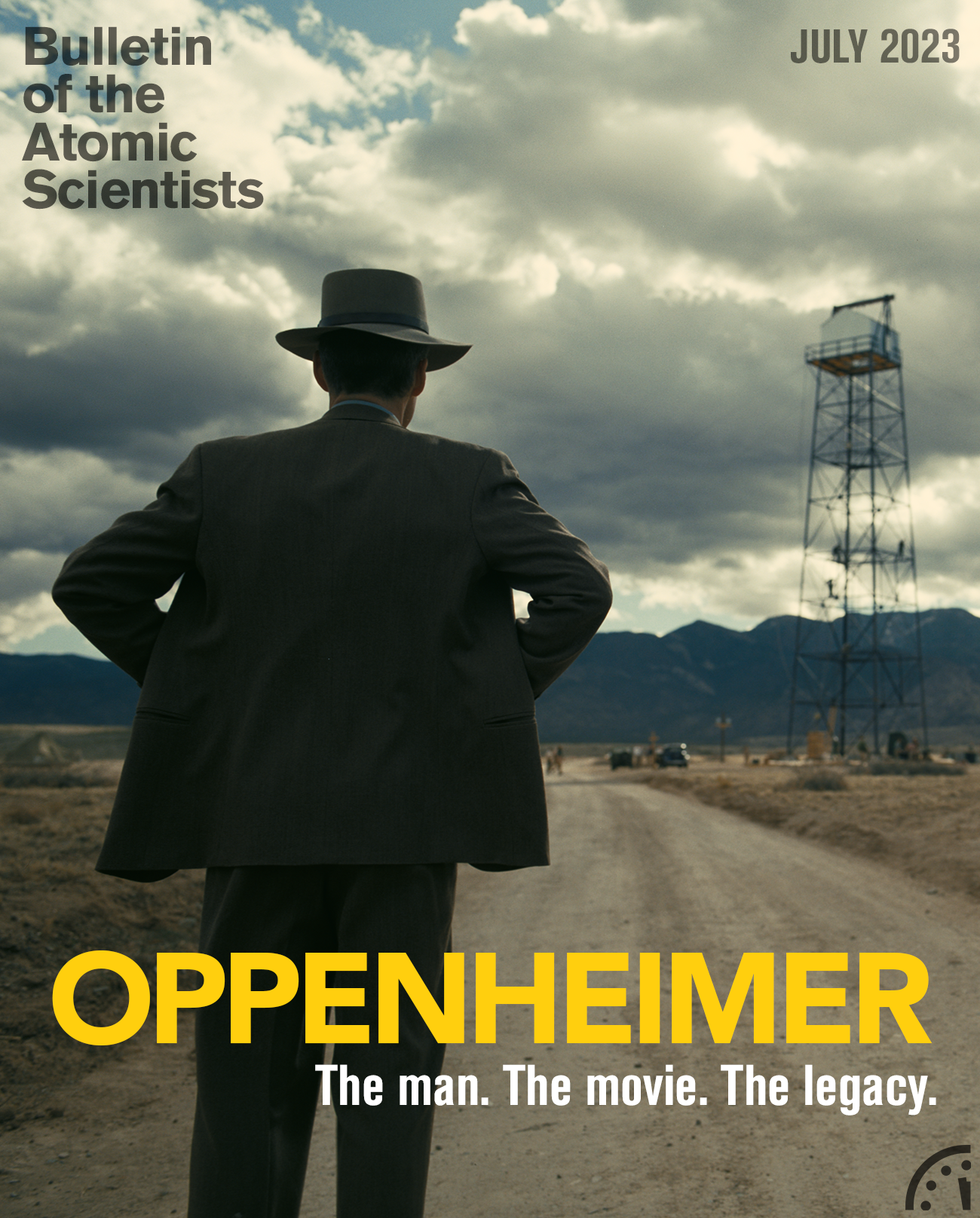
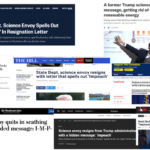

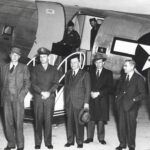



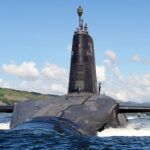


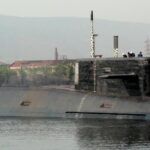
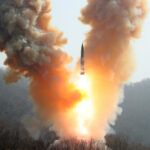









It seems that the development and use of atomic weapons was inevitable. Mankind is self destructive and needs to be put on a leash. To this day, many nations possess or want to possess this power. It amazes me how we feel that we and other nations must worship the bomb because it seemingly keeps the peace or the false impression of peace in a world that will never know peace. Instead of peace, it almost appears to be a stumbling block keeping us from really casting our differences aside because everyone must have the same potential of power.I believe… Read more »
Thank you for this excellent context. I am concerned that the Hollywood blockbuster movie will contribute to the narrative that the atomic bomb “ended the war.” It may have effectively ended the war but that narrative alleviates truly taking responsibility for the mistake that the United States made.
That assumes that the dropping of the bombs was a mistake. I for one @ 76 years old do not. My mother, who was in Military Intelligence and wore the Manhattan Project patch, died after 19 years following her work on the Nagasaki bomb. I was born exposed to I-131 (radioactive iodine). My atty was in military intelligence on board a ship headed for Japan. When they dropped the Nagasaki bomb they turned around and headed home. It wasn’t the Soviets and Manchuria. It was the bombs. Kathleen is not old enough to know the horrors of Bataan ar what… Read more »
It wasn’t a mistake. Japan was willing to fight to the last man and unwilling to surrender. Many more would have died had the war continued with the invasion of Japan. Yes, nuclear bombs are horrible and what happened to the Japanese was terrible. However, it was ultimately necessary. Don’t blame America, blame the leadership of Japan.
As terrible as they were, the two bombings saved millions of lives, both Japanese and American. The loss of life in taking Okinawa and Iwo Jima was a warning of what an invasion of Japan would cost! The Japanese themselves said they would defend Japan at all costs!!
You leave out the real genius and architect of the atomic bomb Enrico Fermi he developed first atomic power plant in 1942 as a peaceful application of this technology he won the nobel prize inphysics in the 30s and wwnt on to teach 8 nobel prize winners Oppenheimer was primarily an administrator
If anyone’s to blame for Hiroshima and Nagasaki, it’s the Japanese leadership who chose to launch and unprovoked attack on the United States, while their diplomats were giving out “peace bracelets” in Washington DC, declared war on the US, then went on to form an alliance with Hitler and the Nazis. The US was so far removed from the war that we wouldn’t even send equipment to the UK, even though they paid for it. America tried everything possible to stay out of the war, but the Japanese still launched a cowardly attack on us. So, I don’t want to… Read more »
The Japanese did not wage war, the military dictatorship did. Japan was not a democracy or even a pretend one like America. The people of Japan had no say in anything during the pre war and war years.
There’s a moral flaw in your argument. To claim there was some sort of honourable merit in America, then the most powerful country in the world, trying everything possible to stay out of a war being fought by allies against the most evil man and country to ever exist, until Japan’s cowardly attack on us, leaves out the possible different trajectory of the war had America supported allies in that just war from the start, it may well have ended in victory for the allies before the bomb was even ready.
Read history of annexation of Hawaii and US-Mexico wars.
The entire human history is full of oppression and counter aggression.
No use blaming Japan alone for Hiroshuma / Nagasaki.
Nor the USSR for ”cold war’ !
Daniel, yes, Japan was already beaten at the end of 1944, but still refused to end a lost war. They knew that when Guam and Tinian fell that ” hell was upon them” because Japan was in the range of B-29 bombing. In March of 1945, 100,000 died in the fire bombing of Tokyo. Still they refused to quit the war. The Japanese army was barbaric in it’s treatment of POWs and the Chinese on a colossal scale. They pissed off all their opponents in WW2. The Japanese had a standing order to kill all of their POWs the moment… Read more »
It was not only Germany that understood am atomic weapon was possible but Japan as well. Japan had no qualms about using the work of “Jewish physics ‘ that Germany did and had embarked on enriching Uranium using the centrifuge process. Work was done under Professors Nissan and Arakatsu. The work was not given the same resources as the Manhattan Project, but the Japanese were on the right track. As a military historian, I have little doubt that had they began earlier with more resources they would have had a working weapon. Japan had a large four engine bomber, the… Read more »
It’s a bit of a false dichotomy to say “invasion, or bomb”; use of the readied atom bombs (there’d have been about 15 ready by the time the invasion began) was integral to the invasion plan; cities that were judged too difficult to take would have been their targets, with troops to move through them within 24 hours, and what a nightmare that is.
No postwar Japanese economic miracles, a large portion of the Greatest Generation directly exposed to fallout-who knows what that would have done to the baby boom.
Oppenheimer was a Man of his time . He used his abilities to stop a Bloody War the Japanese created. ” Oppenheimer backed Bombing Cities without warning ” sounds like what the Japanese did to just about every Asian Nation to the ground . Oppenheimer you have to say was created by the Japanese Bushito Code, Tojo , and the Japanese People themselves ……. .
I find interesting that in some cases… Dr. J. Robert Oppenheimer is blamed for the Bombing of Hiroshima and Nagasaki… when in fact it was a race between The Allied Forces and The Axis Powers of Europe. It wasn’t so much Dr. Oppenheimer’s choice, but when the Axis Powers surrender occured… it was transferred to The Allied Forces to drop the Bomb(s) over The Axis Power of Japan. Though it is true… Dr. Oppenheimer created the bomb, but the original plan of use changed. Was Dr. Oppenheimer the cause of blame… no, but the military who could have waited. Unfortunately…… Read more »
‘Since I don’t have an answer to why… I would think the Bombing of Hiroshima was more than enough’ It was not the same. Hiroshima was a uranium based bomb (Little Boy). Nagasaki (Fat Man) was plutonium. They had to ‘
test’ them…and Bataan, the Chinese, and the Koreans were fresh in their minds.
No, Hiroshima was not enough. Not only were the Japanese given time before both bombs and told to surrender without condition each time, but the imperial military would also stage a coup attempt after the second bomb. While His Imperial Majesty Emperor Hirohito was set to surrender after the second bomb in Nagasaki, and only after because the first would not be brought to his attention to keep him from ending the war, the Japanese military was set to take this war to the grave and the emperor with them. I suggest researching the Kyujo incident, August 14th 1945, five… Read more »
Instead of killing innocents in Japan with the Atom bombs, they should have been dropped in the sea as a warning , then Japan would have surrendered immedietly. I am the son of an ex INA soldier who worked in Singapore in AZAD HIND DAL . My father narrated to me of how he and his colleagues were impresioned in Jap POW camp , lead to a firing squad , escaped and eventually returned to India through Burma . That was after late Sree Subash Chander Bose opposed the Japanese for invading India with their soldiers , though they agreed… Read more »
You think that would have made a difference when the Admiralty and Emperor refused to surrender after we dropped the Hiroshima bomb? I think not. So we dropped the second one. They surrendered. It wasn’t the Soviets and Manchuria. It was the Fat Man.
Excellent article and unique perspective.
I read ‘Dark Sun’ by Richard Rhodes and I got the distinct impression that Oppenheimer was at the mercy of an out of control military led by General Groves and Curtis Lemay. He was already under investigation for espionage during the development of the bomb and under tremendous pressure to produce. He may have felt the need to prove his loyalty to protect himself and his family.
“ So, after the surrender of Germany in May 1945 and the danger removed, Szilard wondered why they should continue to develop atomic bombs, and he began advocacy for his position [against using the bomb] again.”
It was very late in the war that we learned Japan was also working on an atomic bomb, but we did not know how much progress they had made. Perhaps this knowledge that the danger was *not* removed led our government to continue development in spite of Szilard’s advocacy.
The reason Japan didn’t use atomic weapons was because they didn’t have the materials to build them. Germany sent in a U-boat but it sank in the Indian Ocean. This fact is been left out of the discussion.